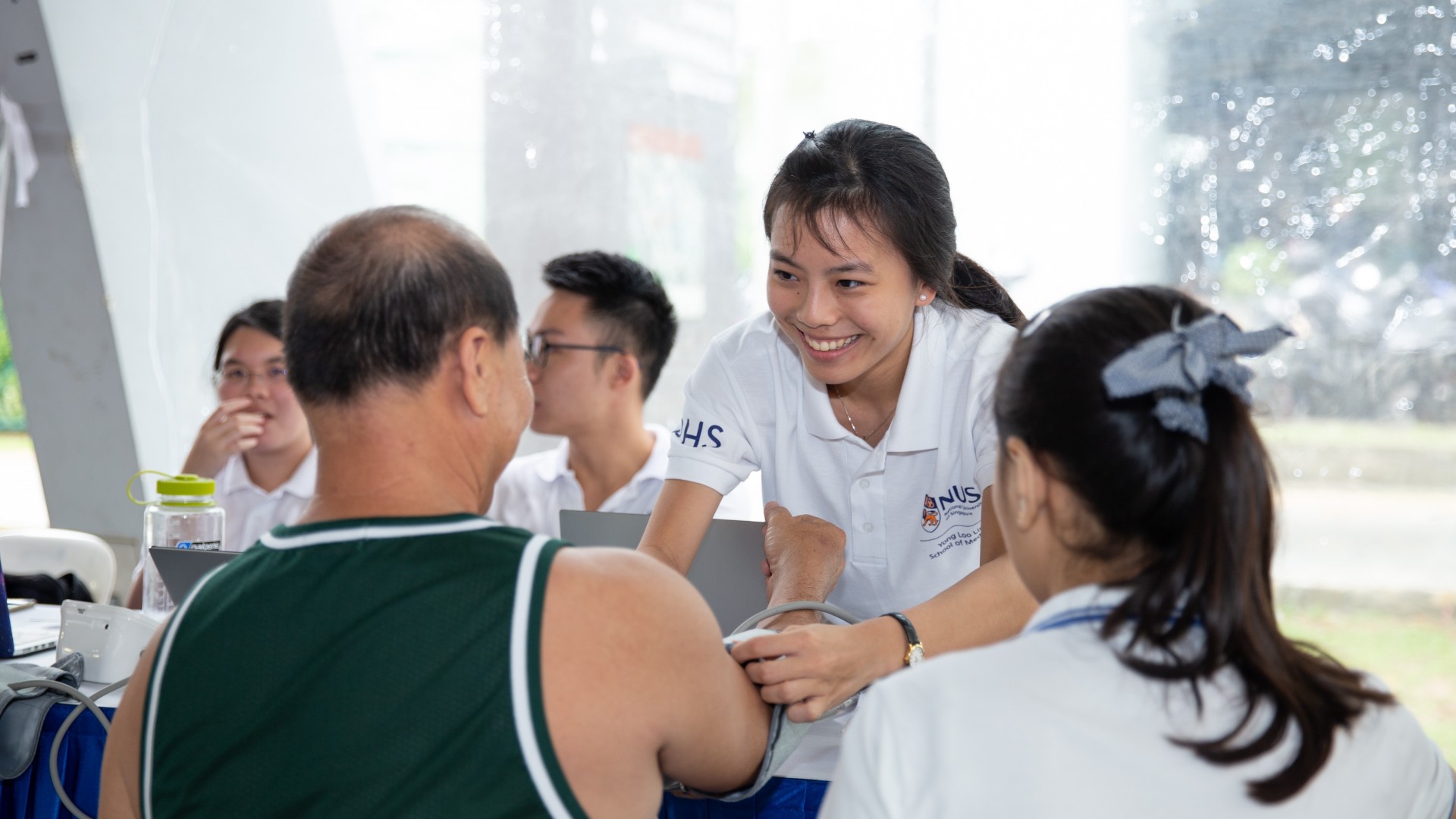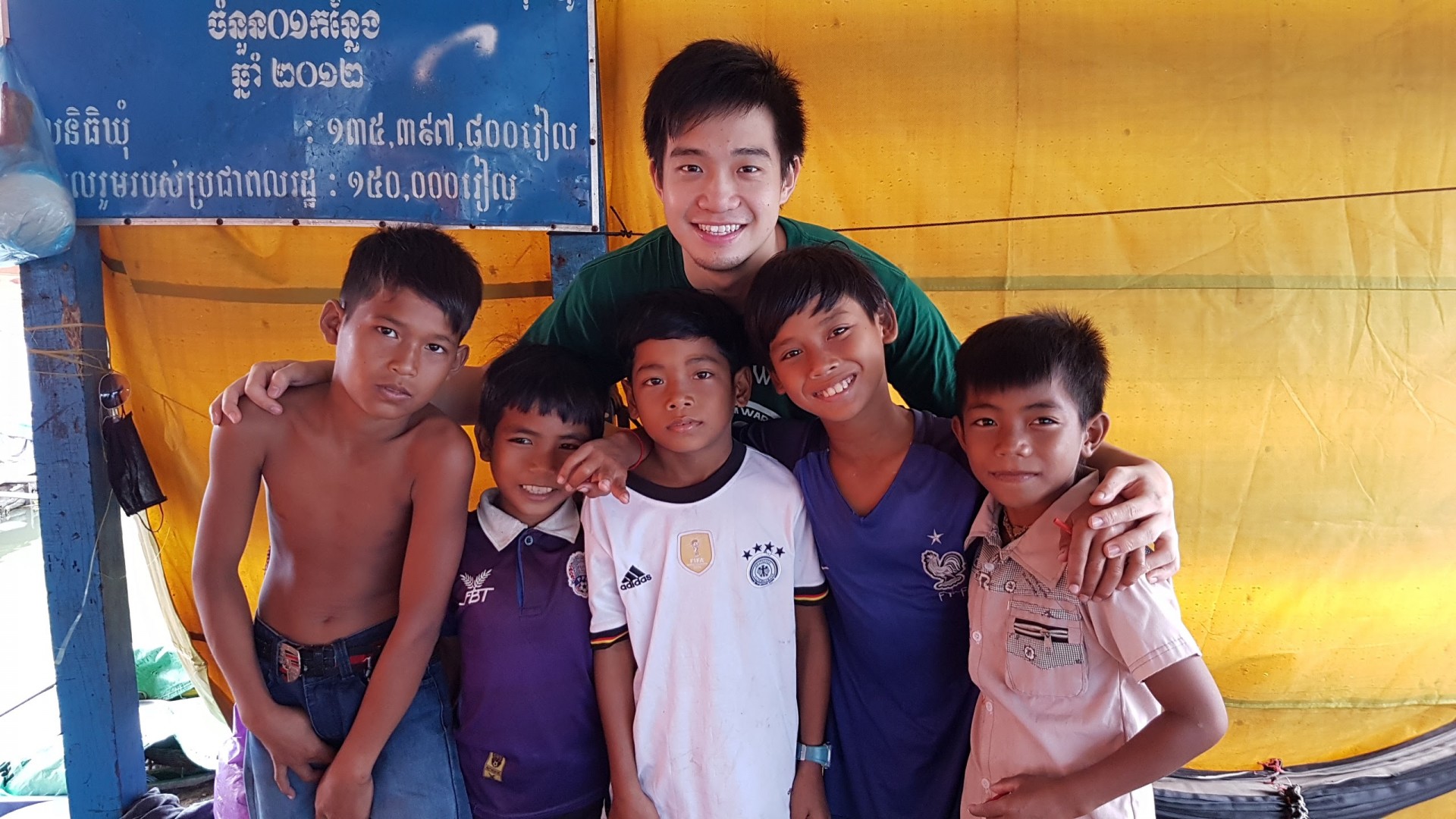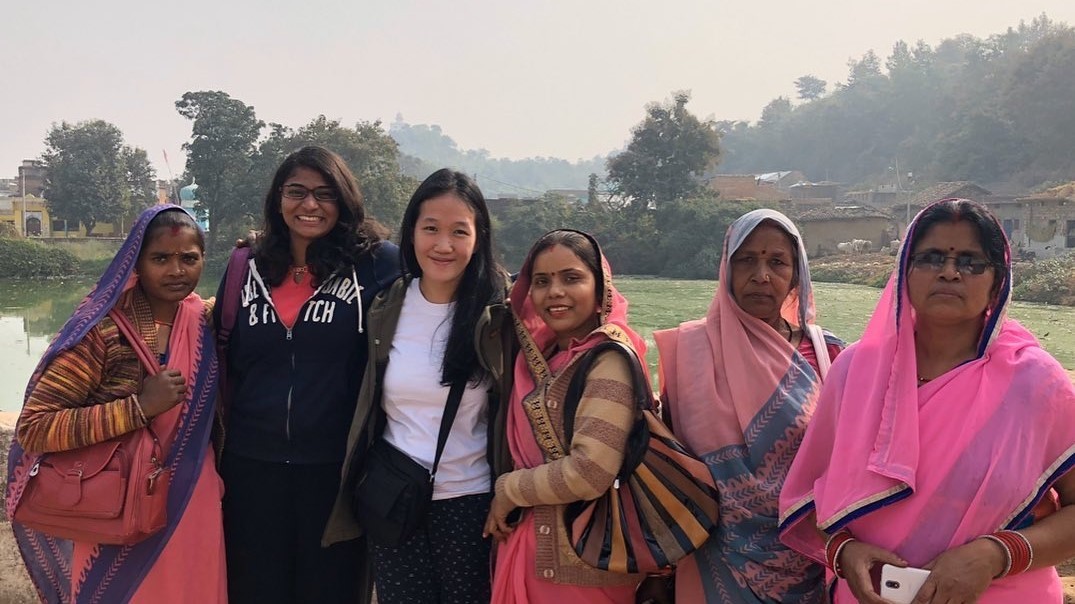NUS’ impact trilogy: talent, solutions, society
August 13, 2021

The National University of Singapore (NUS) has released its inaugural Impact Report, highlighting the University’s wide-ranging contributions over the past five years, from 2016 to 2020.
The report details the University’s efforts and progress in shaping talent, solutions and society for the future. It notes, for instance, that NUS graduates have been making their mark in both the private and public sectors. Not only do they earn 8 per cent more than their counterparts from other local universities, they also emerge as leaders of society and industry. Half of the current Parliament in Singapore comprises NUS alumni.
In the area of research and innovation, the University is also taking the lead in developing Singapore’s first homegrown COVID-19 vaccine, and encouraging entrepreneurship by producing 125 spin-off companies between 2016 and 2020 – a threefold increase from the previous five years.
“Creating impact is in our DNA, from the time we were founded as a medical school to serve the needs of the local community. Today, on many fronts, NUS has made a difference to the lives of individuals, society and the nation and we will continue to do so in the tradition of our forefathers,” said NUS President Professor Tan Eng Chye.
Here are some of the highlights of the report, which you can also access here.
Shaping Future Talent: Rethinking education
With the world changing faster than ever before, graduates will need to adapt and solve complex problems by understanding the connections between disciplines.

Recognising the new complexities that await graduates, NUS has been reinventing curricula and introducing even more interdisciplinarity into learning. The new College of Humanities and Sciences, launched in December 2020, will provide students access to more than 1,000 modules from both the Faculty of Arts and Social Sciences and the Faculty of Science. A Common Curriculum has also been developed for the Faculty of Engineering and the School of Design and Environment.
The University is also a strong supporter of continuous learning – it has contributed to the national SkillsFuture movement by upgrading the skills of over 450,000 people since 2016. Providing equal opportunities to students of all backgrounds is another area of focus in shaping future talent. NUS disbursed $673.3 million in financial aid from 2016 to 2020, benefitting half of each cohort.

One beneficiary is Mr Lim Chong Tee, who came from a household where money was tight.
When he went to university, he worked to ease his family’s financial burden by giving tuition multiple times a week, even while juggling schoolwork. Then, help came in the form of the NUS Donated Bursary.
The financial aid not only helped him focus on his studies, but also gave him time to set up Wateroam – a social enterprise that designs portable water filtration systems for use in rural areas and disaster-relief operations – with two fellow students.
“I was extremely thankful to receive the award. With the bursary, I was able to give fewer tuition classes every week, put more energy into developing my academic, technical and entrepreneurial skills, and have more time with my family on weekends,” said Mr Lim, who graduated from the Faculty of Engineering in 2016.
Shaping Future Solutions: Addressing the needs of tomorrow
The University is also a firm believer in driving innovation to create solutions to some of our most pressing problems today.
Research funding grew to more than $3.74 billion over the last five years, enabling advancements in areas like biomedical science, sustainability solutions, and Singapore’s Smart Nation initiative, as well as the fight against the COVID-19 pandemic.

When the SARS-CoV-2 virus first emerged, scientists around the world rushed to develop a vaccine. Leading the charge in Singapore was Professor Ooi Eng Eong, Deputy Director of the Emerging Infectious Diseases Programme at Duke-NUS Medical School.
Prof Ooi and his team developed Lunar-Cov19, which leverages a new technology called messenger RNA (mRNA) that could coax a stronger immune response from the body. The vaccine, currently being tested on humans, could potentially be effective as a single dose.

“NUS has allowed the diversity of ideas that has helped us to move this vaccine development in the speed that we have done. The vaccine is finishing Phase II trials right now and if all goes well, it will be ready by the end of the year,” said Prof Ooi.
Solutions that help bring about a cleaner, greener and more self-sustaining world are also part of NUS’ focus – in research, education, as well as campus operations. Efforts to make the NUS campus a model for green developments are underway, with all buildings currently already receiving PUB Water Efficient Building certification. Eco-friendly initiatives such as food waste recycling and solar panel installations have also been implemented.
Shaping Future Society: Creating a better world
Education becomes more meaningful when it is paired with action to improve the world. In the last five years, students have embarked on over 200 local and 150 overseas community projects. These projects, which focus on the underserved and disadvantaged, range from providing legal education workshops for migrant workers in Singapore, to equipping women in Nepal with the financial know-how to run their own business.
One significant project spearheaded by medical and nursing students is the Neighbourhood Health Service (NHS), which has provided free health screening to more than 6,000 residents across nine districts in Singapore since 2008.
As part of the NHS programme, Yong Loo Lin School of Medicine student Neha Burla goes door to door at rental housing estates, speaking with residents and reconnecting them back to the healthcare system through health screenings and follow-up.

Neha, who has volunteered with the NHS for two years since 2019, said it has been a rewarding experience.
“Interacting with the residents and being able to apply my skills and knowledge for a fruitful purpose has been a very humbling experience and I have grown to be a better medical student… and also overall a better person as well,” she said.

While it has been an exciting journey for the University, it is not resting on its laurels. Going forward, NUS hopes to drive continuous improvement in the way it gives back to nation and society.
“In a place as dynamic and forward-looking as Singapore, NUS too will not stand still,” said Prof Tan. “We see an exciting future ahead, one which we will play a fundamental role in shaping. With disruptive changes sweeping the world today, we intend to be at the forefront of this revolution, by shaping future talent, solutions, and society.”

